Perhaps only when human effort had done it's best and failed, would God's power alone be free to work
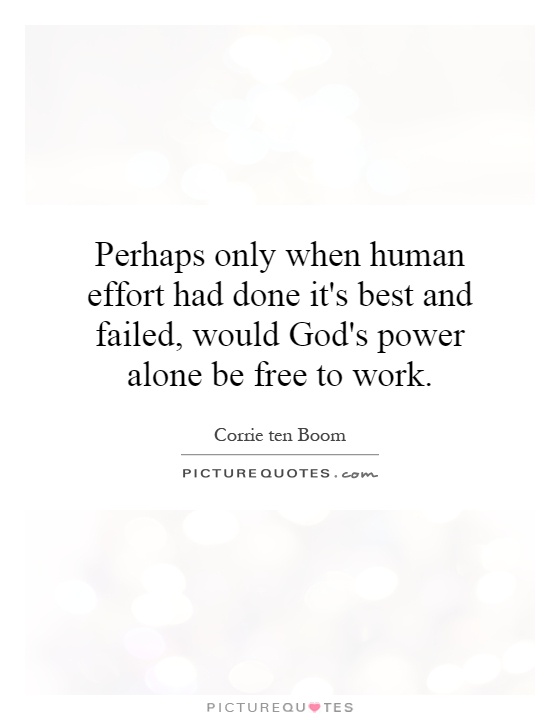
Perhaps only when human effort had done it's best and failed, would God's power alone be free to work
Corrie ten Boom was a remarkable woman who lived through one of the darkest periods in human history - the Holocaust. As a devout Christian, she believed in the power of prayer and the importance of trusting in God's plan, even in the face of unimaginable suffering and evil. The quote, "Perhaps only when human effort had done its best and failed, would God's power alone be free to work," perfectly encapsulates Corrie ten Boom's unwavering faith and belief in the divine intervention of God.During World War II, Corrie and her family risked their lives to hide and rescue Jews from the Nazis in their home in the Netherlands. Despite facing constant danger and the threat of being discovered, Corrie never wavered in her belief that God would protect and guide them. She believed that their efforts, no matter how small or insignificant they may seem, were part of God's greater plan to bring hope and salvation to those in need.
As the war raged on and the situation grew increasingly dire, Corrie witnessed firsthand the limitations of human effort in the face of such overwhelming evil. Despite their best intentions and tireless efforts, there were times when it seemed like all hope was lost. It was in these moments of despair and helplessness that Corrie turned to her faith and trusted in God's power to work miracles.
In her memoir, "The Hiding Place," Corrie recounts numerous instances where God's intervention saved her and her family from certain death. From narrowly escaping capture by the Nazis to finding unexpected sources of help and protection, Corrie saw firsthand how God's power could work in ways that surpassed human understanding. It was through these experiences that Corrie learned to surrender control and trust in God's plan, even when it seemed impossible.

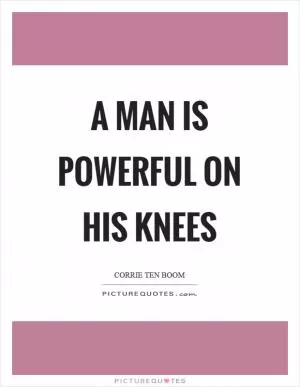
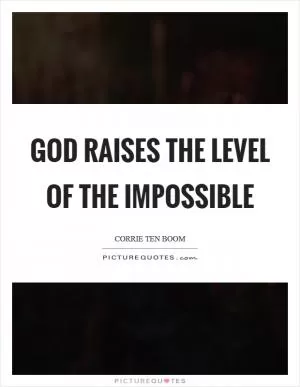





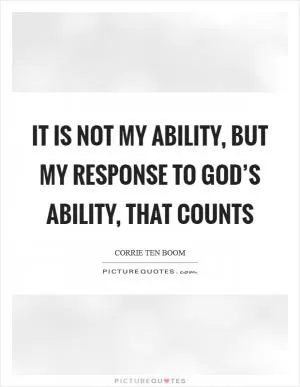

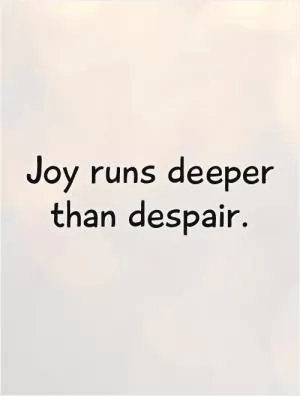
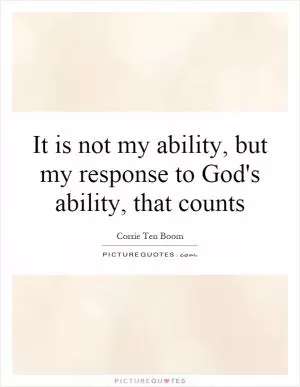
 Friendship Quotes
Friendship Quotes Love Quotes
Love Quotes Life Quotes
Life Quotes Funny Quotes
Funny Quotes Motivational Quotes
Motivational Quotes Inspirational Quotes
Inspirational Quotes